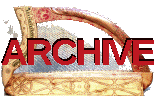

|
Beinn Eadarrainn is a Gaelic song.
It is usually sung as part of a ghost story featuring Raghnall Mac Ailein Òig, who is supposed to have learned the song from the singing of the ghost1.
As usual with oral tradition songs and tales, there are many variant versions of the song with slightly different words and slightly different tunes. There are also variants of the story. Some versions of the story, including the earliest written version2, do not mention Ranald at all.
Ranald is said to have played this tune on the pipes3, though I am not aware of any performance tradition of playing it as a pipe tune.
Donald MacDonald (storytelling & song), ‘’S Fhada Bhuam Fhìn Cùl Beinn Eadarra’, 1954, University of Edinburgh School of Scottish Studies tape SA1954.44.4+45, online at Tobar an Dualchais. This is a telling of the story in Gaelic, which includes singing of the song towards the end. Text transcribed and translated in Tocher 39, p. 116-119
William MacDonald (storytelling), ‘Sgeulachd mu cholann gun cheann agus mar a fhuair Raghnall mac Ailein Òig cuidhteas i’, 1954, University of Edinburgh School of Scottish Studies tape SA1954.42.5, online at Tobar an Dualchais. This telling of the story in Gaelic includes the song words recited but not sung; it is summarised in English in Calum MacLean, The Highlands, Batsford 1959, p.87.
Angus MacLellan (storytelling & song), ‘Colann gun Cheann ann am Mòrar’ & ‘Is Fhada Bhuam Fhín Bonn Beinn Eadarra’, 1953, University of Edinburgh School of Scottish Studies tapes SA1953.25.B12 & SA1953.25.B13, online at Tobar an Dualchais: story & song.
Joan Wilson (song), ‘Is Fhada Bhuam Fhìn Bonn Beinn Eadarra’, 1953, University of Edinburgh School of Scottish Studies tape SA1953.142.A2, online at Tobar an Dualchais.
Calum Johnston (song), ‘Is Fhada Tha Mi An Cul Beinn Eadarra’, 1954, University of Edinburgh School of Scottish Studies tape SA1954/29/3, on Songs, Stories and Piping from Barra, CD2 track 18.
Donald MacEachen (sorytelling & song), ‘’S Fhada Bhuam Fhìn Bonn Beinn Eadarra’, 1954, University of Edinburgh School of Scottish Studies tape SA1954.38.3, online at Tobar an Dualchais.
James Nicolson (song), ‘Bonn Beinn Eadarra’, 1954, University of Edinburgh School of Scottish Studies tape SA1954.001.003 / SA1954.2.3, online at Tobar an Dualchais.
Christina Stewart (song) & Martin MacDonald (guitar), ‘Bonn Beinn Eadarra’, Haunting CD1 track 11, FB004, 2012. Also, CD2 track 11 is a telling of a story in English by Stewart, with guitar by MacDonald. This version of the story does not name the strong protagonist, and gives a detailed back-story for the ghost.
1. D.C. MacPherson (Abrach), ‘Raonull Mac Ailein Oig’, in An Gaidheal, summer 1874, p.73 gives the story and song words in Gaelic.
Also, Henry Whyte (Fionn), ‘Our musical page’, The Celtic Monthly vol IV, 1896, p.68-69 gives an English paraphrase of the 1874 Gaelic text, with the song airs also given laid under a melody notated in solfege. Online at ambaile.com.
Also, Ruaidhri MacAoidh, ‘Raghnall Mac Ailein Oig’, Gairm vol 49, 1964, p.81-3 gives a Gaelic version of the story and song words.
Also, Dan Angus Beaton, ‘Colainn gun Cheann’, Cape Breton Magazine 45, June 1987, gives an English and a Gaelic version of the story, with the song words included towards the end with musical notation. This also includes a reprint of the text and translation of the Tocher 39 transcription and translation of Donald MacDonald’s 1954 telling. Online at capebretonsmagazine.com.
^
2. J.F. Campbell, Popular Tales of the West Highlands Orally Collected, volume 2, 1860, p.89-91, gives the story in English, with the song words in Gaelic and in translation, and with notation of the song melody. This version of the story does not mention Ranald; the strong protagonist is here named as Iain Garbh MacLeod of Raasay, though the action takes place as usual on the road just south of Cross House in Morar, and the ghost is said to be a friend to the MacDonalds of Morar. ^
3. Calum MacLean, The Highlands, Batsford 1959, p.87: “The tune ... was noted by Ronald ... and it is still played by pipers in many parts of the Highlands”. ^